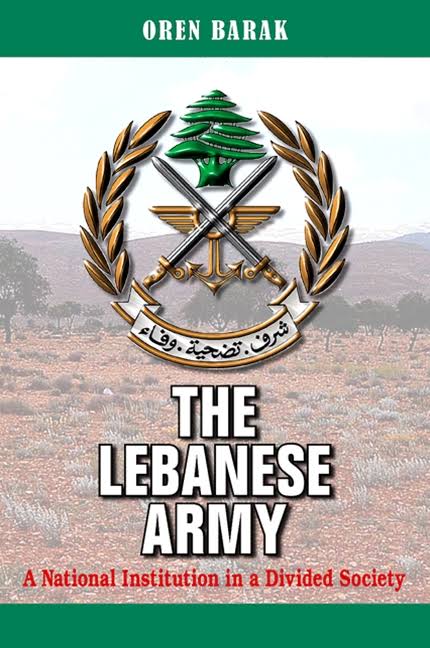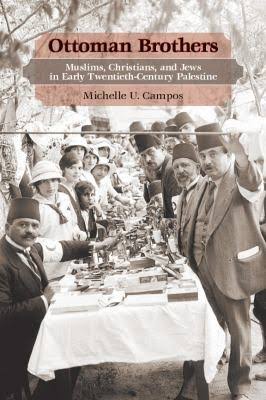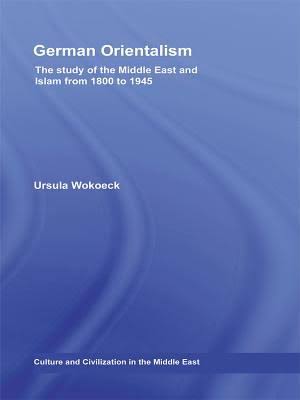-
Add to cartQuick view
Harbingers of Feminism: A New Look at the Works of Pioneering Palestinian Women Writers
Free!This article brings to light the harbingers of the tradition of Palestinian women’s writing in a gendered reading of the works of two leading, post-1948 women writers, Samira ʿAzzam and Najwa Qaʿwar-Farah. The article examines why literary critics ignored the feminine dimension of these writers’ works, and saw them as imitating and adapting existing patterns and conventions of writing. The article shows, how both thematically and stylistically, these early writers highlighted their feminine presence and that of their heroines; to what extent they succeeded in imbuing their writing with feminist messages; and how they enabled later women writers by laying the foundations of a tradition of women’s literature.
Add to cartQuick view -
Add to cartQuick view
Challenging Religious and Secularist Patriarchy: Islamist Women’s New Activism in Turkey
Free!Since the late 1990s, following the state’s process of de-politicization and exclusion, educated Islamist women in the urban centers of Turkey have been active in raising Muslim women’s identity consciousness and generating solidarity with those affected by the headscarf ban. In the women’s organizations analyzed in this article, Islamist women are carving out a niche to challenge both secularist and Islamist patriarchal practices and discourse. This article contends that organized Islamist women have become significant actors in autonomously mobilizing religious women—in the political parties and in the Islamic movement—in the democratization process. The Islamist women’s learning process has opened them up to dialogue and cooperation—on gender equality and other liberalization issues—with secular women as well as with other oppressed groups. However, their “feminist” stance creates some dilemmas for Islamist and secular women.
Add to cartQuick view -
Add to cartQuick view
Babel by Cemil Meriç (Translation)
“Babel,” the first chapter of Cemil Meriç’s Bu Ülke, is translated here to English for the first time. Meriç, a Turkish intellectual, inspired many scholars and leaders in post-Kemalist Turkey. “Babel” is a critical discussion of Kemalist intellectuals’ cultural and political outlook and the cultural reforms they instated. Meriç refuses to accept the divisions between East and West, religious and secular, and Right and Left which he sees as straitjackets imported from Christian Europe that prevent freedom of thought. At the same time, his writing integrates a philosophy inspired by the West with one that originates in the East and creates a symbiosis between them. He challenges the premises of the Turkish modernization project and the attempt to create a new generation, new state, new language and new culture. Writing in a subversive language, Meriç contends that a reformist project disconnected from its past is doomed to a lack of substance and failure.
$5.00Free!Add to cartQuick view -
Add to cartQuick view
Michelle U. Campos. Ottoman Brothers: Muslims, Christians and Jews in Early Twentieth-Century Palestine. Stanford: Stanford University Press, 2011. 360 pp.
Michelle U. Campos. Ottoman Brothers: Muslims, Christians and Jews in Early Twentieth-Century Palestine. Stanford: Stanford University Press, 2011. 360 pp.
$5.00Free!Add to cartQuick view -
Add to cartQuick view
Ursula Wokoeck. German Orientalism: The Study of the Middle East and Islam from 1800-1945. New York: Routledge, 2009. 333 pp.
Ursula Wokoeck. German Orientalism: The Study of the Middle East and Islam from 1800-1945. New York: Routledge, 2009. 333 pp.
$5.00Free!Add to cartQuick view -
Add to cartQuick view
Review Essay: Georges Tarabichi and the Religionization of the Public Sphere: A Heretic Voice from the East
Free!Georges Tarabichi. هرطقات [Heresies]
Vol. I: عن الديموقراطية والعلمانية والحداثة والممانعة العربية [On Democracy, Secularism, Modernity and Arab
Reluctance], 3rd ed. Beirut: Dar al-Saqi and The Association of Arab Rationalists, 2011. 237 pp.
Vol. II: العلمانية كإشكالية إسلامية – إسلامية [Secularism as an Intra-Islamic Issue], 2nd ed. Beirut: Dar al-Saqi and The Association of Arab Rationalists, 2011. 253 pp.Add to cartQuick view -
Add to cartQuick view
Erotics of the Exotic: Orientalism and Fictionalization of the Mooress in the Early Modern Mediterranean
Free!The representation of women in the realm of Islam in early modern Spanish literary, religious, historical, and political texts provides a very significant key to the perception of the “Other” in Spain. These women were categorized according to their radically different circumstances: in Spain they were Moriscas (where they were the objects of an internal colonization), but in the Ottoman Empire (which was seen as a threat to Christian Europe) they were Moras and Turcas. Muslim women were systematically portrayed as highly sexualized subjects, sometimes in combination with the mystified harem and the slave market. In a tone ranging from contempt and disgust to ravishing desire, Muslim women were depicted as sensual and sexually accessible creatures. This Occidental fantasy was a means of establishing an imaginary domain over a powerful rival. Such representations of women were themselves essentially Orientalist, even when they occurred prior to the colonial and postcolonial relationship between the West and the Orient, suggesting that Orientalism itself ought not to be exclusively linked with colonialism and postcolonialism.
Add to cartQuick view -
Add to cartQuick view
Renegades as Crossover Figures: Forgers of the Early Modern Mediterranean
Free!The early modern Mediterranean world would be incomprehensible without taking into account the key roles of the so-called renegades—converts to Islam—who were far more numerous than converts to Christianity. Since renegades rarely wrote or spoke about themselves except under inquisitorial interrogation, and since most texts of the period portrayed them with hostility, the widest range of sources and discursive genres (including literary) in many languages needs to be examined in order to get some sense of who they were. As frontier protagonists, renegades articulated the cultural and religious divide within the Mediterranean. Models proposing split personalities, antagonistic civilizations, or religious discord have done little to resolve the enigma posed by the renegades in all their heterogeneity. This article questions the emphasis on belief and “sincerity” that has always dominated the discussion of renegades, stressing instead their pragmatism, strategic orientation, and acquired capabilities.
Add to cartQuick view -
Add to cartQuick view
Just Like Democracy: Ethnography of Realpolitik in a City of Immigrants
Free!The goal of this paper is to open a new space for understanding political culture “after orientalism,” in polycultural, liberal societies. Relying on three years of ethnographic research (2001–04) at the Likud party chapter in the immigrant city of Ashdod, I present an ethnography of citizenship in action. I argue that at the point where citizenship as an ideal type meets immigrants from developing countries, people mimic and utilize citizenship as a way to support their social mobility. Ideology becomes ID-ology and stands in the center of a new political culture that is neither Occidental nor Oriental.
This new culture of citizenship is formed in three stages: first, the immigrants adopt and approve the Occidental perception of citizenship that fits the Occidental imagination of citizenship; second, the Likud party members distinguish between form and content, loading the “appropriate” definition of citizenship with new content and new ways of interpretation that promote their purpose of socially mobilizing themselves and taking over positions of power; and third, new political cultures of citizenship occupy the city hall. The new citizenship resembles Occidental citizenship, but uses a different toolbox for power accumulation and new methods of interpretation.Add to cartQuick view -
Add to cartQuick view
Back to the Future: The Jerusalem Exhibit at the 1904 St. Louis World’s Fair
Free!The famous St. Louis World’s Fair of 1904 was a vast celebration of the new century and its promise of a future governed by technological and scientific progress. It is not often remembered that in the heart of this paean to modernity stood an enormous and astonishingly life-like replica of the Old City of Jerusalem. Evoking the past rather than the future and transcendence rather than materiality, what was Jerusalem doing in the St. Louis Fair? How did its presence challenge, complicate, or legitimize the popular narratives of modernization with which it was surrounded? Through a description of the fair and the replica—and contra theories that continue to adhere to the secularization thesis and its structuring binaries—this essay is an examination of the preservation and deployment of religious themes and symbols within modernity.
Add to cartQuick view -
Add to cartQuick view
A Chosen Republic: Rome, Jerusalem, and the “Mediterranean Synthesis” in American History
Free!This article traces the ethos of the United States to a Mediterranean setting. Founded as a Roman-like republic, the country has also understood itself as a “second Israel” throughout its history. This combination has proved itself to be anything but problem free: while Americans wished to become republicans according to the Roman model, they could not ignore Rome’s corruption and decline. On the other hand, if they were to be the new Israel, what did it mean to be a God-chosen republic?
One way to make sense of this tension is by better understanding a “Mediterranean Synthesis” in American history. If Rome excited Americans but also demonstrated that a republic would necessarily become corrupt, Jerusalem promised that the American Rome could escape the historical pitfalls that ensnared republics for millennia. Americans thus made sense of the meaning of their national experience in light of two ancient Mediterranean entities, a classical polity and a biblical nation, hence becoming a chosen republic. The outcome was Americans’ paradoxical ability to perceive theirs as an exceptional polity, one that would not necessarily follow the universal rules of history.
Add to cartQuick view
- Home
- About JLS
- Issues
- Vol. 9 No. 1 | Summer 2019
- Vol 8 No 2 Winter 2018
- Vol. 8, No. 1: Summer 2018
- Vol. 7, No. 2: Winter 2017
- Vol. 7, 1: Summer 2017
- Vol. 6, Summer/Winter 2016
- Vol. 5, No. 2 Winter 2015
- Vol. 5, No. 1 Summer 2015
- Vol. 4, No. 2 Winter 2014
- Vol. 4, No. 1 Summer 2014
- Vol. 3, No. 2 Winter 2013
- Vol. 3, No. 1 Summer 2013
- Vol. 2, No. 2 Winter 2012
- Vol. 2, No. 1 Summer 2012
- Vol. 1, No. 2 Winter 2011
- Vol. 1, No. 1 Summer 2011
- Blog
- dock-uments
- Subscribe
- Submit
- Contact





